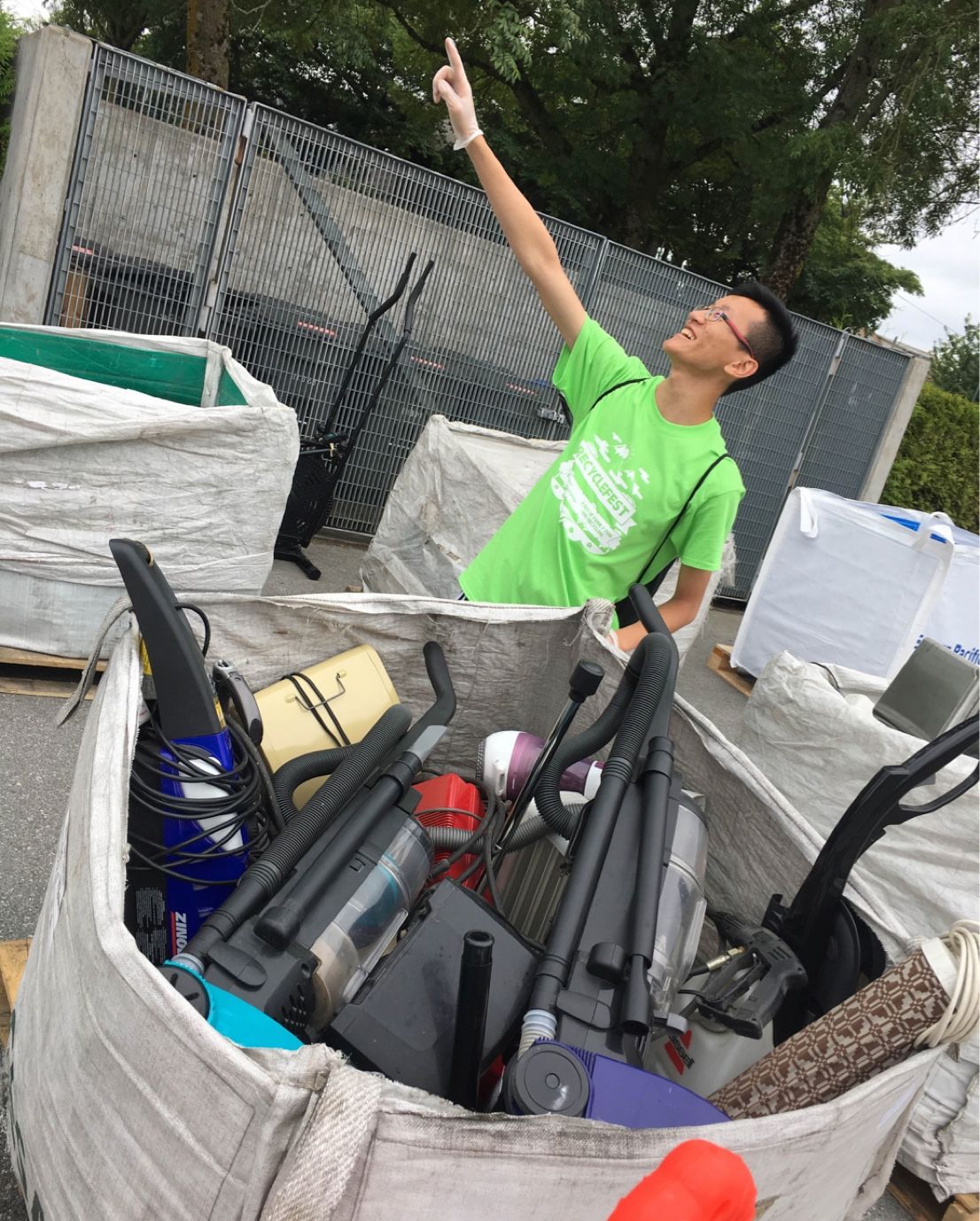
Our Funding Model
We apply a fee to every unit sold Members remit those fees to us
Members report their sales of products covered under the Regulation
100% of fees collected are channelled into our recycling program
It is at a member’s sole discretion to decide how or if they wish to recuperate any or all of the fees. Members typically recuperate their recycling program investment in the form of an Environmental Handling Fee (EHF) applied at the point of sale.
Example:
- CESA collects a fee of $0.25 on all hairdryers sold by Hanna’s Hairdryer Haven, a CESA member.
- Hilary, a consumer, visits Hanna’s Hairdryer Haven and buys a brand new hair dryer.
- At the till, an Environmental Handling Fee of $0.25 is applied to the sale of the hair dryer to Hilary.
- When Hilary’s hairdryer reaches the end of its life, Hilary brings it to an ElectroRecycle collection facility – one of CESA’s many service providers.
- Hilary does not pay anything to drop off her unwanted hairdryer.
Looking to Remit Your Fees?
Click on the external link below to remit your fees for products you have sold over the past year
Remit FeesTo show or not to show?
In some other stewardship programs, the EHF is passed down through the supply chain to consumers. The fee applied at the point of sale on a designated product will never exceed the fee paid by a member to CESA for the recycling of that product.
In British Columbia, the Environmental Handling Fee:
May be shown separately on the product receipt at the point of sale
May be incorporated directly into the price of the product
May be absorbed, at the discretion of the program members and their subsequent customers
EHF Table
View EHFs| Product Category | Fee Per Unit Effective October 1st, 2018 |
|---|---|
| Kitchen Countertop – Motorized Appliances | $0.50 |
| Kitchen Countertop – Heating Appliances | $0.80 |
| Kitchen Countertop – Heating Appliances (coffee/tea) | $0.70 |
| Microwave Ovens | $5.00 |
| Time Measurement & Display Devices | $0.20 |
| Weight Measurement | $0.30 |
| Garment Care Appliances | $0.60 |
| Air Treatment Appliances | $0.95 |
| Personal Care Appliances | $0.25 |
| Full-size Floor Cleaning Appliances | $2.50 |
| Smaller Floor/Surface Cleaning Appliances | $0.50 |
| Test and Measurement Tools | $0.35 |
| Hand-held Power Tools | $0.55 |
| Bench-top, Demolition, Free-Standing Power Tools | $1.20 |
| Sewing / Textile Machines | $2.75 |
| Exercise Machines | $1.85 |
| Sports, Leisure, Arts, Crafts, Hobby Devices | $0.75 |
| Designated Very Small Items | $0.20 |

How are product fees determined?
When CESA was born, the EPR model of recycling was already active for a number of products. We looked to established industry best practices to set our fees, guided by other stewardship groups in our region.
We developed our fee-setting parameters based on:
- Fairness and transparency
- Balancing the number of categories with administrative costs
- No “cross subsidization” of product categories. In other words, the cost of managing one product category should not be subsidized by another category.
Estimating program costs
We based our fees on the best available historical sales data for regulated products, along with future sales forecasts, the average recyclable weight of the products, and expected collection volumes. Collection volumes were forecasted using insights from other stewardship programs and baseline research on consumers’ product ownership and behaviour.
Other considerations
Because we manage so many products, we can achieve economies of scale in the recycling process that wouldn’t be possible for any one member operating independently.
Keeping our members’ fees as low as possible effectively means that consumers pay less at the point of sale.
There is no cost to consumers to drop off products through the ElectroRecycle program.
Many products under one program = greater efficiencies
The fees associated with the program must cover the cost of managing both historical and orphan products – products that are no longer in production, but may still end up returned to the recycling stream for our program to manage.
The fees must also support the objective of long-term financial stability ensuring that any significant shifts in the sale or collection of regulated products does not compromise our solvency.
Accordingly, the fee structure supports a reserve and contingency fund that can be used to mitigate unpredictable market variances. Any surplus the program makes is not kept for a significant length of time.
Special fee and remittance scenarios
We see recycling small appliances and power tools as a collaborative effort between CESA and you, the member. As a member, know that we will work hard to realize the deliverables we have committed to as a stewardship organization, from collection, transportation and processing of program materials, to resolving any queries you send us..
In turn, we expect our members to report and remit program fees consistently. Program materials require our careful attention every single day and so we count on fee revenues to work seamlessly.
We recognize that you may encounter a situation outside of the normal day-to-day routine of program membership.
The following policies clarify what to do in these unusual circumstances.